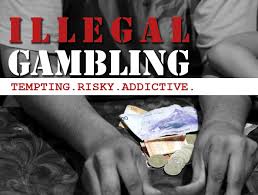
Pakistan’s anti-gambling laws have been in place for decades, primarily to maintain moral order and adhere to the country’s Islamic legal framework. Under the Pakistan Penal Code, most forms of gambling are illegal, including casinos, lotteries, and sports betting. However, despite these laws, Pakistan faces significant challenges in enforcing its anti-gambling regulations. As global gambling trends evolve, digital platforms proliferate, and underground betting becomes more sophisticated, Pakistan finds itself struggling to keep pace. This article explores the various factors that contribute to Pakistan’s difficulty in enforcing anti-gambling laws, the rise of illegal gambling operations, and the need for regulatory reform to address the digital age’s new challenges.
The Deep Roots of Gambling Prohibition
The origins of Pakistan’s gambling prohibition lie in its Islamic legal system. In Islam, gambling is considered haram (forbidden) due to its potential for fostering addiction, financial ruin, and social instability. This religious principle has shaped Pakistan’s approach to gambling, with strict legal measures designed to prevent the spread of gambling activities. Under the Pakistan Penal Code, gambling is criminalized, and the Gambling Act of 1977 further outlawed games of chance, including casinos and betting shops.
For decades, the Pakistani government and law enforcement agencies have maintained a firm stance against gambling. The rationale has been to protect the population from the social harms associated with gambling, including addiction, crime, and the erosion of moral values. While the legal framework remains largely intact, the reality is that gambling activity in Pakistan is rampant, and the country’s authorities are struggling to prevent it.
The Rise of Underground Gambling
One of the primary reasons why Pakistan’s anti-gambling laws are ineffective is the proliferation of underground gambling operations. Although traditional forms of gambling, such as casinos and betting shops, are illegal, illegal gambling continues to thrive in the shadows of Pakistani society. Underground casinos, sports betting rings, and lottery operations flourish in cities like Karachi, Lahore, and Islamabad, often hidden in plain sight. These illegal activities often operate with impunity, circumventing the country’s laws.
The main drivers of illegal gambling in Pakistan are lack of enforcement, corruption, and economic desperation. Many individuals turn to underground gambling as a source of quick financial gain, particularly in a country where unemployment and poverty are prevalent. Additionally, some gambling operations are deeply entrenched in organized crime, further complicating efforts to dismantle them. These underground operations are difficult to track and regulate because they tend to be small-scale, mobile, or operate through informal networks, making it hard for law enforcement agencies to infiltrate and close them down.
Law enforcement agencies often lack the resources and expertise to effectively combat illegal gambling. Corruption within some levels of government and law enforcement also exacerbates the problem, as bribery and collusion with illegal operators are not uncommon. As a result, even when gambling operations are raided or exposed, the individuals involved rarely face serious consequences, allowing illegal gambling to thrive.
The Digital Age: A New Challenge
The most significant obstacle to enforcing Pakistan’s anti-gambling laws today is the rise of digital gambling. In the age of the internet and smartphones, online gambling has become more accessible than ever before. Websites offering sports betting, online casinos, and poker games are only a few clicks away for Pakistani citizens. The increasing popularity of mobile apps and cryptocurrency-based casinos has further complicated enforcement efforts.
While Pakistan has taken steps to block access to gambling websites by restricting internet access to certain platforms, these efforts have proven to be largely ineffective. Many users can bypass these restrictions using Virtual Private Networks (VPNs), which mask their IP addresses and allow them to access offshore gambling sites without detection. Additionally, the anonymity provided by digital platforms makes it much harder for authorities to track and arrest individuals involved in online gambling activities. Unlike traditional, land-based gambling venues, which are easier to monitor and regulate, online gambling operates in a vast, global space that transcends national borders.
Furthermore, cryptocurrency gambling presents a new challenge for Pakistani authorities. Bitcoin and other cryptocurrencies allow individuals to place bets on offshore casinos and betting platforms without using traditional financial systems, which would be easier for authorities to track. The rise of cryptocurrency-based gambling platforms has made it even more difficult for governments to monitor financial transactions and ensure that illegal gambling activities are not taking place.
The Social and Economic Impact of Unregulated Gambling
While Pakistan’s anti-gambling laws are meant to protect citizens from the harmful effects of gambling, the lack of effective enforcement has resulted in a rise in gambling-related social problems. Addiction, financial ruin, and family breakdowns are just a few of the social consequences associated with gambling. In the absence of a regulated gambling market, people are often left vulnerable to fraud and exploitation from illegal operators.
Gambling addiction is a significant concern in Pakistan, especially with the rise of online gambling. Many individuals, particularly youth, are drawn into gambling due to the excitement and promise of financial rewards. Unfortunately, without proper safeguards or support systems in place, these individuals can quickly spiral into addiction. Families and communities often bear the brunt of these effects, facing financial loss and emotional distress.
On a broader scale, illegal gambling also impacts the economy. The lack of tax revenue from a regulated gambling industry deprives the government of potential income that could be reinvested into public services and social welfare programs. Illegal gambling operations also contribute to organized crime and money laundering, which pose a threat to national security and public order.
The Need for Regulatory Reform
Given the ineffectiveness of Pakistan’s current approach to gambling regulation, there is growing debate over whether the country should adopt a more modern and regulated approach to gambling, especially in the digital age. Legalizing and regulating gambling could help the government tap into the significant economic potential of the gambling industry while also providing a framework to protect consumers and ensure fair play.
Regulatory reforms could include the establishment of regulated gambling zones, such as the models seen in Macau or Singapore, where casinos are permitted but carefully monitored and taxed. Additionally, regulating online gambling and cryptocurrency-based casinos could help Pakistan stay ahead of digital gambling trends and ensure that citizens are protected from illegal operators. A regulated gambling framework could also include addiction prevention measures, such as self-exclusion programs, gambling addiction counseling, and strict age restrictions.
By taking a more proactive approach, Pakistan could harness the potential revenue from gambling while ensuring that it is properly managed and regulated. Legalizing gambling could also reduce the influence of organized crime by providing a legitimate, government-regulated market for gamblers, cutting off illegal operators who thrive in the current underground system.
Conclusion: The Way Forward
Pakistan’s struggle to enforce its anti-gambling laws is a product of both technological advancements and deep-rooted cultural beliefs. The rise of illegal gambling and digital platforms has left the government playing catch-up, while the social consequences of unregulated gambling continue to affect its citizens. The failure to enforce existing laws only exacerbates the problem, leaving the country vulnerable to the negative impacts of gambling, including addiction, financial ruin, and organized crime.
As the global gambling landscape evolves, Pakistan faces a choice: to continue enforcing outdated laws in a digital age, or to modernize its approach to gambling, integrating regulation and control while mitigating the associated risks. By embracing a more regulated framework, Pakistan could reduce the prevalence of illegal gambling, harness the economic potential of the gambling market, and protect its citizens from the harms of addiction and exploitation. While cultural and religious objections will undoubtedly continue to shape the debate, the rise of digital gambling and the growing challenges to enforcement suggest that change may be inevitable.
Experience Thrills and Big Rewards at KKClub Casino – Pakistan’s Premier Gaming Hub!





